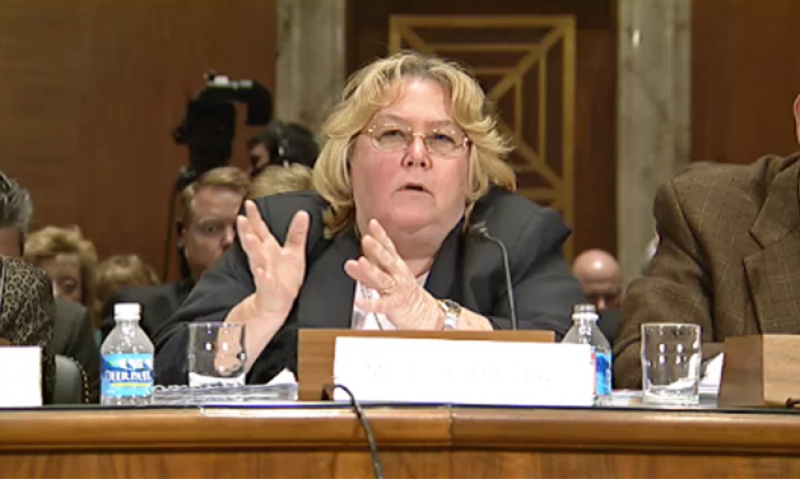
VA’s Office of the Inspector General testifies before the Senate Veterans’ Affairs Committee on false wait-time data.
Nearly seven years after problems with wait-time data were uncovered, the Veterans Health Administration (VHA) still has a patient-scheduling system that is "broken," according to Linda Halliday of the Department of Veterans Affairs (VA) Office of Inspector General (OIG). And on April 25, Halliday testified before the Senate Veterans’ Affairs Committee (SVAC) at a hearing that focused on VA’s mental health care.
Sen. Patty Murray, D-Wash., opened the hearing as committee chair and quickly drew attention to an OIG report released April 23 that found VHA’s data on waiting times for mental health care patients was grossly inaccurate. Murray said the OIG findings "show some serious discrepancies in what VA has been telling this committee" and that "the existing scheduling system is hopelessly insufficient and needs to be replaced." She said VA "is failing to meet its own mandates for timeliness, and instead is finding ways to make the date look like they are complying."
While VHA reported, for fiscal year 2011, that 95 percent of first-time patients received full mental health evaluations within 14 days, Halliday testified that OIG’s analysis "projected that VHA provided only 49 percent (approximately 184,000) of first-time patients their evaluations within 14 days." The report also noted that VHA completed only 64 percent of new patient appointments within 14 days of their desired date.
"We found VHA’s mental-health performance data is not accurate or reliable," Halliday told the committee. "VHA’s measures do not adequately reflect critical dimensions of mental health-care access." She said that inaccuracies in data collected by VHA on mental-health staffing and productivity made it less useful for VHA decision-makers to "evaluate productivity across the system, and establish mental-health staffing and productivity standards."
American Legion National Commander Fang A. Wong said the hearing "shines a bright light on the problems VHA continues to have with its data collection on waiting times for our veterans being treated for mental-health issues. We can understand a four- or five-percent margin of error in these statistics, but they were off by almost 50 percent. How does one account for such wild inaccuracy by a federal agency? Especially one that is responsible for treating our veterans?"
Wong said the Legion has urged VA to increase its mental-health care staff and facilities. "Adding 1,900 more positions in mental health care is a step in the right direction, but it now appears they may be in need of some new data analysts at VHA." They should have gotten the message by now. We saw this problem crop up in two previous OIG audits — one in 2005 and another in 2007. And their patient-scheduling problem still isn’t fixed. The American Legion is asking the same question as Congress asked at the hearing: Why?"
The SVAC held two previous hearings on VA mental health care last year in July and November. Murray said the committee was finding "a discrepancy between what VA was telling us, and what the providers were saying" and called upon the VA’s OIG "to investigate the true availability of mental health-care services at VA facilities."
William Schoenhard, testifying for VA, agreed with OIG’s assessment that the patient-scheduling system needs to be revised. He also said mental-health services must continue to be further integrated into primary care, and that stigmas associated with mental health care need to be addressed. "Madame Chairman, we know our work to improve the delivery of mental health care to veterans will never be done. We appreciate your support and encouragement in identifying and resolving challenges, as we find new ways to care for veterans."
VA has been working to develop a new scheduling system for its patients. "VA officials told us that their new scheduling package would be open-sourced and could take up to two years to put into place," said Jacob Gadd, deputy director of health in the Legion’s Veterans Affairs & Rehabilitation Division. "We most assuredly applaud VA’s addition of 1,900 additional mental health-care workers, but without an accurate and effective scheduling system, how will optimal use be made of all those new clinicians and support staff?"
While the committee members asked many tough questions during the hearing, Murray made it clear that "while we have discussed a number of problems with the system at large, none of this reflects poorly on VA’s providers. I believe I can speak for all of us in thanking VA’s many mental health providers for the incredible job they do. Let there be no mistake, these individuals are incredibly dedicated in their mission."
- Legislative

